US-backed, Erdogan’s rivals and tied to Israel: Who are Syria’s Kurdish forces?
Despite Assad’s fall, Syria rife with militias and terror groups clashing over opposing interests; US-backed Syrian Democratic Forces (SDF), Kurdish-led group active for 9 years, fight ISIS and Turkish-backed rebels while seeing Israel as a model
Lior Ben Ari| YNET | 12|11|2024
The regime of dictator Bashar Assad has been toppled, and the former president has fled to Russia, where he has been granted political asylum. However, the fighting in Syria shows no signs of abating, as various factions with opposing interests continue to battle across the country.
Overnight Wednesday, reports emerged that the Kurdish rebel forces, known as the Syrian Democratic Forces (SDF), reached a cease-fire agreement with Turkey-backed rebels near the city of Manbij. The truce was brokered by the United States.
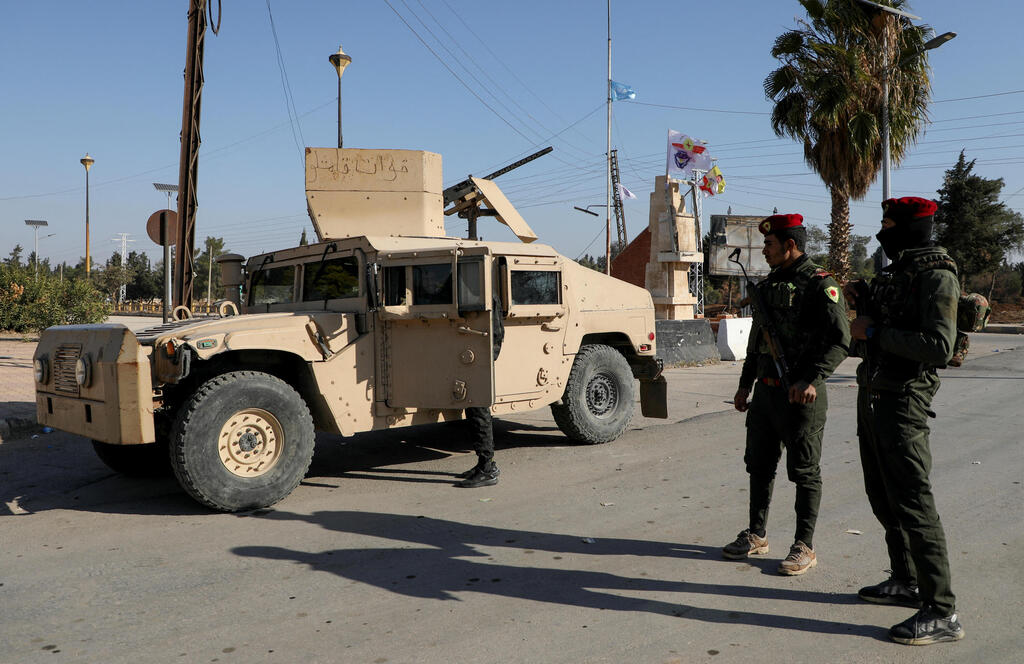
SDF fighters in northeastern Syria
(Photo: REUTERS/Orhan Qereman)
The SDF commander confirmed the agreement to Reuters, just days after the Kurdish rebels announced they had shifted to a defensive posture against "Turkish occupation and its mercenaries."
Among the many groups currently fighting in Syria, here’s what is known about the Syrian Democratic Forces.
US-backed Kurds fighting ISIS: A decade of the SDF
In October 2024, the SDF celebrated nine years since its founding. The alliance was established in the midst of the Syrian Civil War in the fall of 2015, in the city of Qamishli, located in Syria’s northeastern Al-Hasakah province, a predominantly Kurdish border region. This area also became the SDF’s main theater of operations during the civil war.
According to a recent BBC Arabic report, the SDF has enjoyed U.S. support since its inception, having been created to serve as a local partner for the international coalition fighting ISIS.
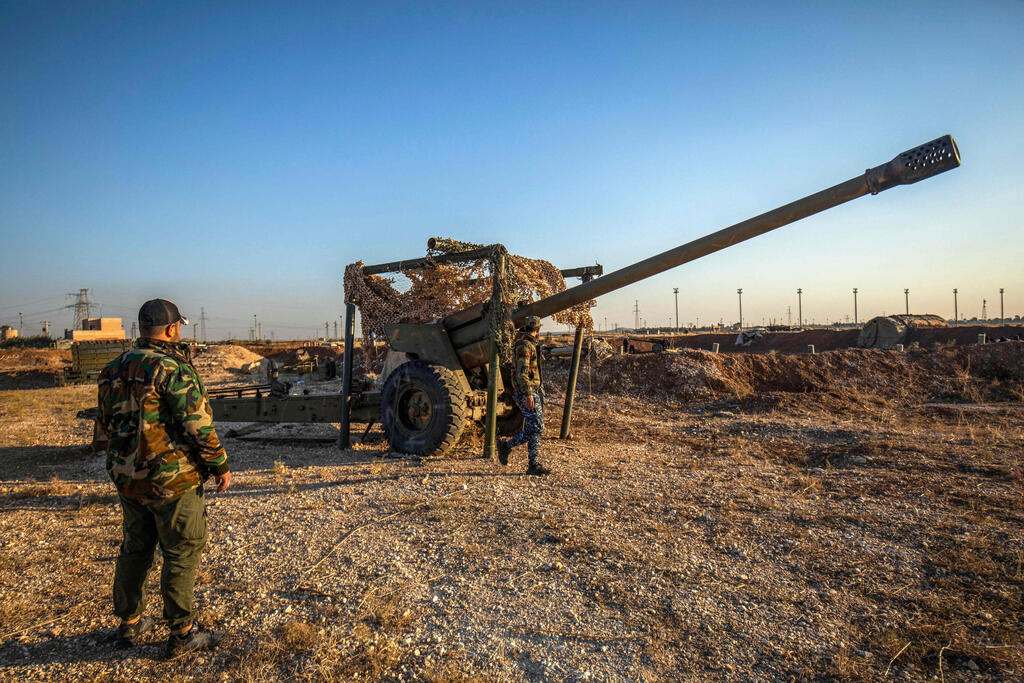
SDF forces in Qamishli
(Photo: Delil Souleiman / AFP)
When the SDF was launched, it described itself as a “national military bloc” representing all Syrians, including but not limited to the Kurdish minority. Its primary goal was to defeat ISIS and reclaim all territories seized by the terror group. Backed by financial and military aid from the coalition, the SDF made significant gains on the battlefield.
However, as the Syrian Civil War progressed, Turkey—Syria’s northern neighbor—viewed the SDF’s armed structure, its concentration in northeastern Syria and its successes with increasing hostility.
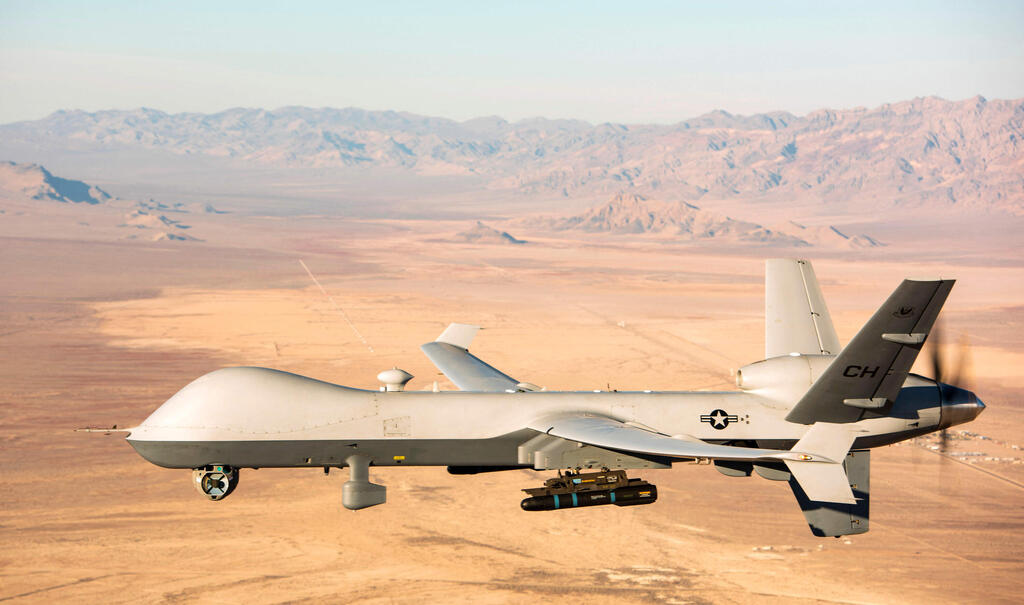
An American MQ-9 Reaper drone
(Photo: AFP PHOTO /US AIR FORCE)
Against this backdrop of Pentagon support and U.S. activity in parts of Syria, CNN reported on Wednesday that SDF forces mistakenly shot down an American MQ-9 Reaper drone in northern Syria. According to several U.S. officials, the Kurdish fighters believed the drone was Turkish and deemed it a threat. CNN noted that a single MQ-9 drone costs around $30 million.
The conflict with Turkey and Trump’s abandonment
The SDF succeeded in driving ISIS out of several strategic areas and took control of large swathes of northeastern Syria. Although ISIS was declared defeated in 2019, the victory did little to secure the Kurdish forces, who feared displacement or annihilation. Their concerns grew following then-U.S. President Donald Trump’s decision to withdraw most American troops—a move the Kurds viewed as abandonment.
The U.S. alliance with the SDF had long been a point of contention between Washington and NATO allies, particularly Turkey. Ankara, a NATO member, opposes the Syrian Democratic Forces and Kurdish aspirations along the borders with Syria and Iraq. Turkey vehemently criticized U.S. support for the SDF and repeatedly launched operations against the group.
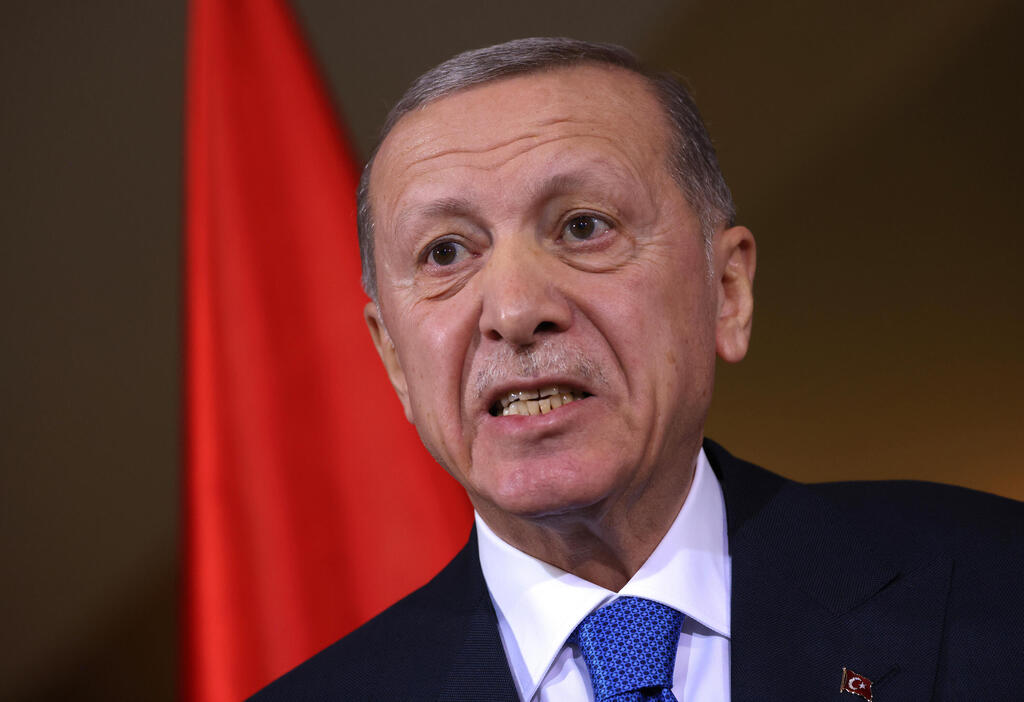
Turkish President Recep Tayyip Erdogan
(Photo: Sean Gallup/Getty Images)
But Turkey wasn’t the only challenge for the SDF. The Syrian regime also opposed the Kurds’ 2016 declaration of a federal system in the areas under their control. According to a BBC report, Turkey’s attacks on the SDF escalated following the outbreak of the Gaza war last year.
Ankara views the SDF as an extension of the Kurdistan Workers’ Party (PKK), a group Turkey designates as a terrorist organization. Turkey has waged a decades-long war against the PKK, resulting in significant casualties.
Just this October, tensions between Turkey and the Kurds flared again after the headquarters of the Turkish Aerospace Industries (TUSAS) in Ankara was bombed. Even before the PKK claimed responsibility, Turkey launched a wave of intense air and ground strikes against the Kurds in Syria and Iraq, reportedly targeting SDF positions.
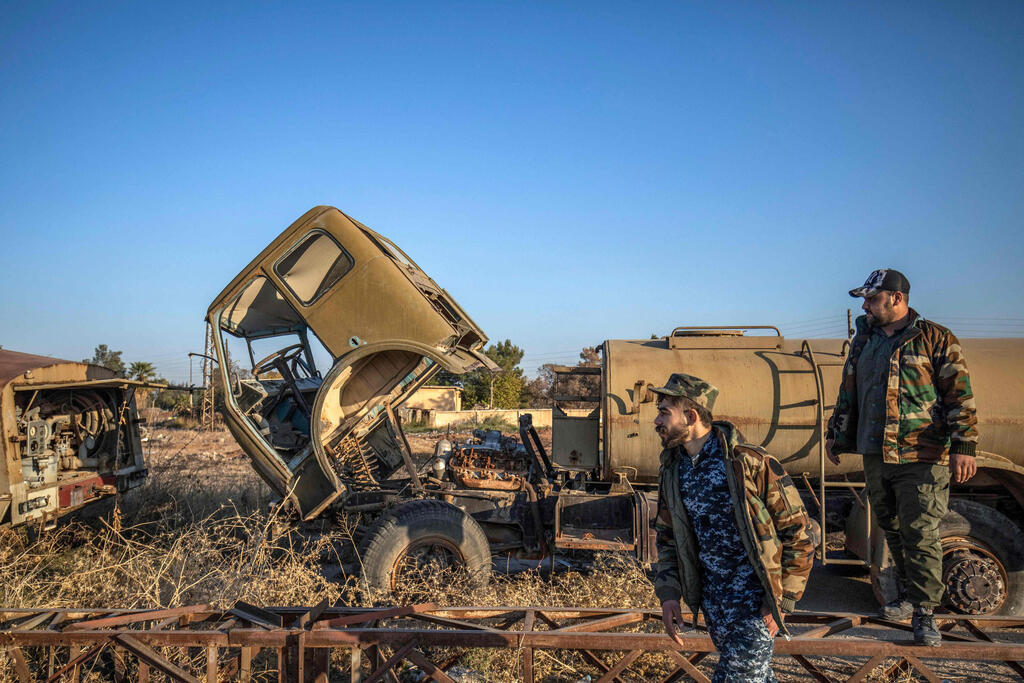
SDF forces in Qamishli
(Photo: Delil Souleiman / AFP)
In addition to Turkey's hostilities, the SDF faced clashes with Arab tribes in Syria’s Deir ez-Zor region, with a second wave of fighting breaking out in August 2023 following earlier clashes in September. Pro-Iranian groups have also attacked SDF positions, adding to the challenges faced by the Kurdish-led alliance.
Challenges for the SDF and its ties with Israel
The main adversaries of the SDF are jihadist groups involved in the Syrian war, particularly ISIS, Turkey-backed Syrian opposition groups and factions linked to al-Qaeda. However, the SDF faces additional challenges.
Opinions are divided regarding the SDF’s exact composition. Some argue that the Kurdish People’s Protection Units (YPG) make up the vast majority of SDF fighters and form the backbone of the organization. Other reports suggest that the number of Arab fighters has increased as the SDF advanced into Arab-majority territories.
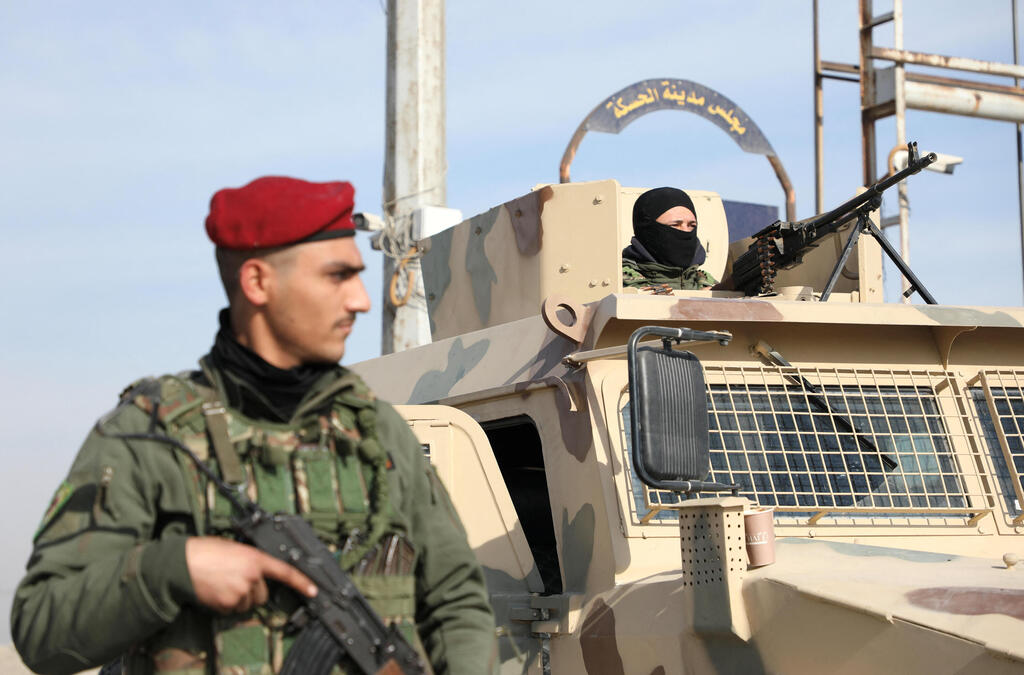
SDF forces in Al-Hasakah
(Photo: REUTERS/Orhan Qereman)
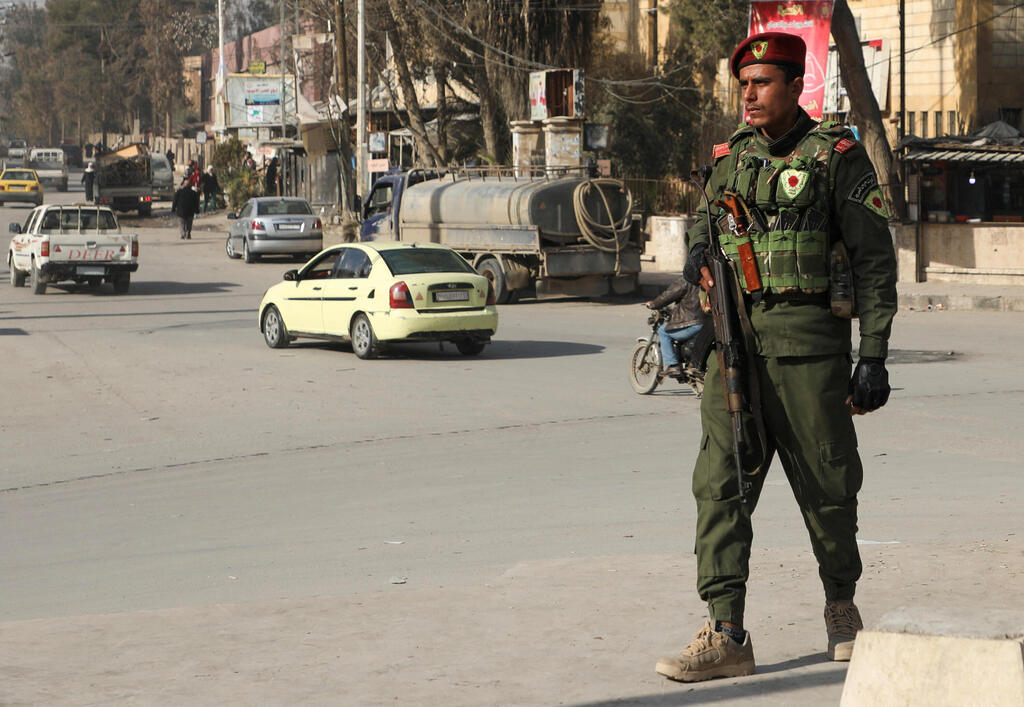
(Photo: REUTERS/Orhan Qereman)
According to the Pentagon, in March 2016, the SDF comprised 40% Kurds and 60% Arabs. Other sources claim a lower percentage of Arab fighters, but there is consensus that Kurdish leadership dominates the group.
The SDF is made up of several armed factions with varying compositions, including the Sanadid Forces, the Syrian Christian Military Council, the Army of Rebels and the YPJ, an all-female militia. These groups have also been active in the Syrian Civil War, striving to protect the independence of Syrian Kurdistan and resisting the Assad regime’s attempts to annex the region.
The SDF’s commander, Mazloum Abdi, whose real name is Ferhad Abdi Şahin, was born in Kobani, Aleppo province, Syria. According to a recent BBC report, Abdi recently congratulated Donald Trump on his election victory but had previously criticized U.S. policy toward Syria during Trump’s first administration.
Announcing a cease-fire agreement with Turkish-backed Syrian opposition forces, Abdi said, “Our goal is to cease fire throughout Syria and enter into a political process for the future of the country.”
The Kurds’ strong ties with Israel are well-documented, and the SDF views Israel as a model.
Speaking at a press briefing on Monday about recent Israeli strikes on various targets in Syria intended to prevent those assets from falling into extremist hands, Foreign Minister Gideon Sa’ar confirmed that Israel maintains contact with the Kurds in the country.
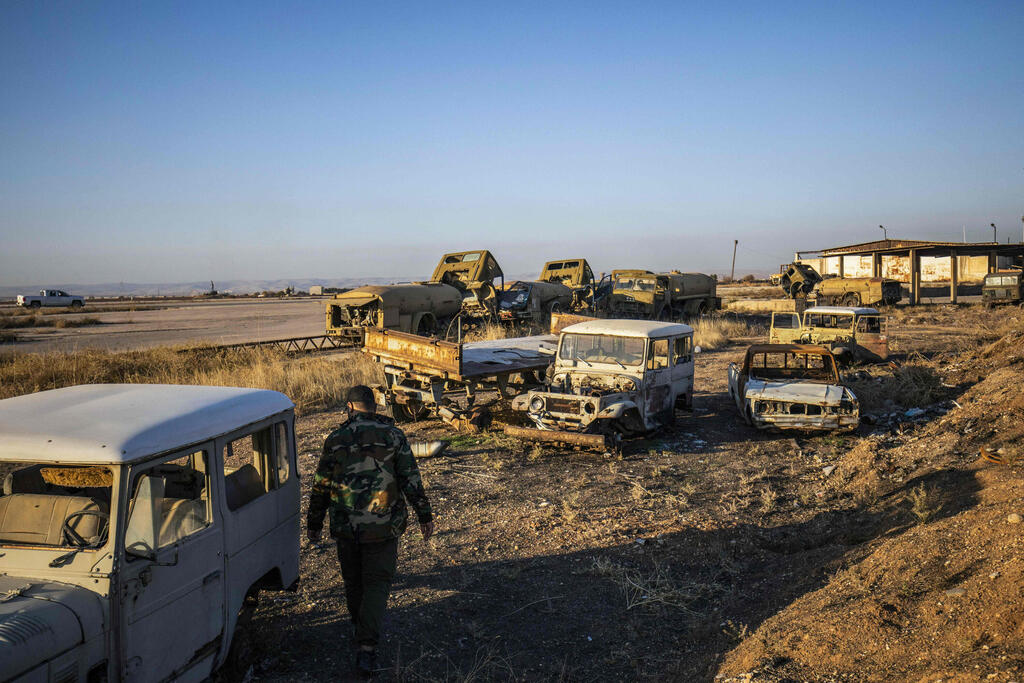
(Photo: Delil Souleiman / AFP)
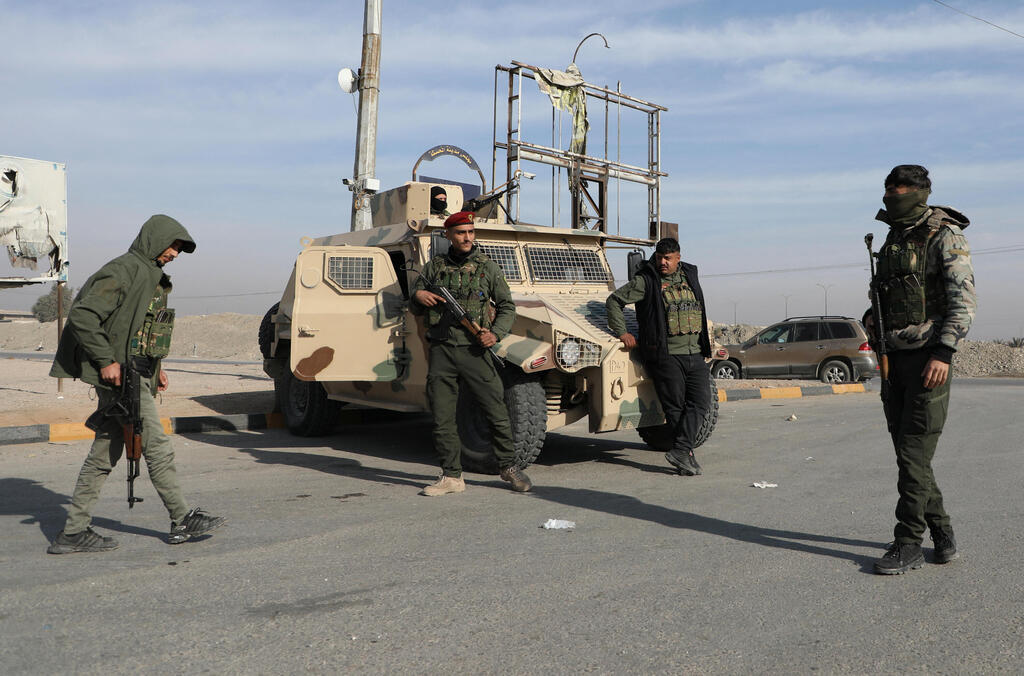
(Photo: REUTERS/Orhan Qereman)
Over the years, the Kurds have also fought against the Hayat Tahrir al-Sham (HTS) militia, led by Abu Mohammed al-Golani. Al-Golani, who had spearheaded efforts to topple Assad in what has been termed "Deterrence of Aggression," recently sent messages advocating for "avoiding sectarian violence and building a new Syria for all."
However, given Syria’s fragmentation, only time will tell if these optimistic messages are genuine and achievable, or if the country will once again spiral into complex internal warfare driven by competing interests.
US-Backed Kurds Lack Hope in Post-Assad Syria
By Brian Freeman | Tuesday, 10 December 2024 | NEWSMAX
The U.S.-backed faction in Syria's civil war, the Kurdish-led Syrian Democratic Forces (SDF), is already concerned that Bashar Assad's ouster may not produce promised hopes for significant change in the country, Newsweek reported on Tuesday.
"First, we were very optimistic about the fall of Assad because he is a great opponent, and he and his party have been in the heart of the Syrians for more than 50 years at least since his father's rule," SDF cochair Riad Darar told Newsweek
But while Darar acknowledged that the Islamist Hay'at Tahrir al-Sham had offered "positive signals" regarding its stated outlook of working with all elements of Syrian society, including the mostly Arab country's sizable Kurdish minority, he also felt "we cannot expect, as usual, Islamic movements to be democratic or just in the national sense in terms of the participation of all popular groups and components."
He cautioned that "perhaps Islamic rule will come, which will affect the societal structure again, and the regime will become totalitarian again and affect the hopes and aspirations of the people or their optimism."
Despite repeated attempts to engage with the newly established Syrian Transitional Government, led by Hay'at Tahrir al-Sham surrogate Prime Minister Mohammed al-Bashir, Darar said the only response so far has been battles with the former opposition.
"We still cannot say that hope exists, because we see changes in the form of the interim government that is intended to be imposed on the Syrians before there is a meeting, national conference, or agreement on the form of the next government," Darar said, adding that "this is also in addition to the mentality that can govern within one vision and traditional stereotypical thinking that relies on the Islamic vision alone and not the national vision."
With clashes erupting across several key strategic axes, the situation puts the United States in a difficult position even as it celebrates the fall of Assad, with whom Washington cut ties at the start of the civil war.
The U.S. continues to extol backing for the SDF while addressing the concerns of NATO ally Turkey, which considers the SDF to be an offshoot of the separatist Kurdistan Workers' Party (PKK). As is the case with ISIS, the U.S. considers the PKK and the formerly Al-Qaeda-affiliated Hay'at Tahrir al-Sham to be terrorist organizations.
Darar said the continued attacks, including reports of ongoing Turkish strikes near the northern town of Ain Issa, only gave a "bad impression" of what was to come under the new Hay'at Tahrir al-Sham transitional government, which he said was set up"without consulting" other segments of Syrian society.
He said the Syrian Democratic Council would continue to strive for a "democratic solution, a decentralized, pluralistic way to build the Syrian state, and for the Syrian Constitution to be a constitution that accommodates all Syrians based on a contemporary, national vision that is neither religious, nor nationalist, nor sectarian."
Darar emphasized counting on continued U.S. backing in the face of the latest challenges that he viewed as being rooted in Turkish aims.
"We are suffering in the regions from this Turkish pressure, and our dependence on the American army is the dependence of a friend on a friend who preserves the sacrifices that we make," Darar said. "It was presented during the partnership and alliance against ISIS, but now there is an obsession with changing the region, and its threat is greater than the threat of ISIS."
Brian Freeman, a Newsmax writer based in Israel, has more than three decades writing and editing about culture and politics for newspapers, online and television.
By Brian Freeman | Tuesday, 10 December 2024 | NEWSMAX
The U.S.-backed faction in Syria's civil war, the Kurdish-led Syrian Democratic Forces (SDF), is already concerned that Bashar Assad's ouster may not produce promised hopes for significant change in the country, Newsweek reported on Tuesday.
"First, we were very optimistic about the fall of Assad because he is a great opponent, and he and his party have been in the heart of the Syrians for more than 50 years at least since his father's rule," SDF cochair Riad Darar told Newsweek
But while Darar acknowledged that the Islamist Hay'at Tahrir al-Sham had offered "positive signals" regarding its stated outlook of working with all elements of Syrian society, including the mostly Arab country's sizable Kurdish minority, he also felt "we cannot expect, as usual, Islamic movements to be democratic or just in the national sense in terms of the participation of all popular groups and components."
He cautioned that "perhaps Islamic rule will come, which will affect the societal structure again, and the regime will become totalitarian again and affect the hopes and aspirations of the people or their optimism."
Despite repeated attempts to engage with the newly established Syrian Transitional Government, led by Hay'at Tahrir al-Sham surrogate Prime Minister Mohammed al-Bashir, Darar said the only response so far has been battles with the former opposition.
"We still cannot say that hope exists, because we see changes in the form of the interim government that is intended to be imposed on the Syrians before there is a meeting, national conference, or agreement on the form of the next government," Darar said, adding that "this is also in addition to the mentality that can govern within one vision and traditional stereotypical thinking that relies on the Islamic vision alone and not the national vision."
With clashes erupting across several key strategic axes, the situation puts the United States in a difficult position even as it celebrates the fall of Assad, with whom Washington cut ties at the start of the civil war.
The U.S. continues to extol backing for the SDF while addressing the concerns of NATO ally Turkey, which considers the SDF to be an offshoot of the separatist Kurdistan Workers' Party (PKK). As is the case with ISIS, the U.S. considers the PKK and the formerly Al-Qaeda-affiliated Hay'at Tahrir al-Sham to be terrorist organizations.
Darar said the continued attacks, including reports of ongoing Turkish strikes near the northern town of Ain Issa, only gave a "bad impression" of what was to come under the new Hay'at Tahrir al-Sham transitional government, which he said was set up"without consulting" other segments of Syrian society.
He said the Syrian Democratic Council would continue to strive for a "democratic solution, a decentralized, pluralistic way to build the Syrian state, and for the Syrian Constitution to be a constitution that accommodates all Syrians based on a contemporary, national vision that is neither religious, nor nationalist, nor sectarian."
Darar emphasized counting on continued U.S. backing in the face of the latest challenges that he viewed as being rooted in Turkish aims.
"We are suffering in the regions from this Turkish pressure, and our dependence on the American army is the dependence of a friend on a friend who preserves the sacrifices that we make," Darar said. "It was presented during the partnership and alliance against ISIS, but now there is an obsession with changing the region, and its threat is greater than the threat of ISIS."
Brian Freeman, a Newsmax writer based in Israel, has more than three decades writing and editing about culture and politics for newspapers, online and television.
No comments:
Post a Comment